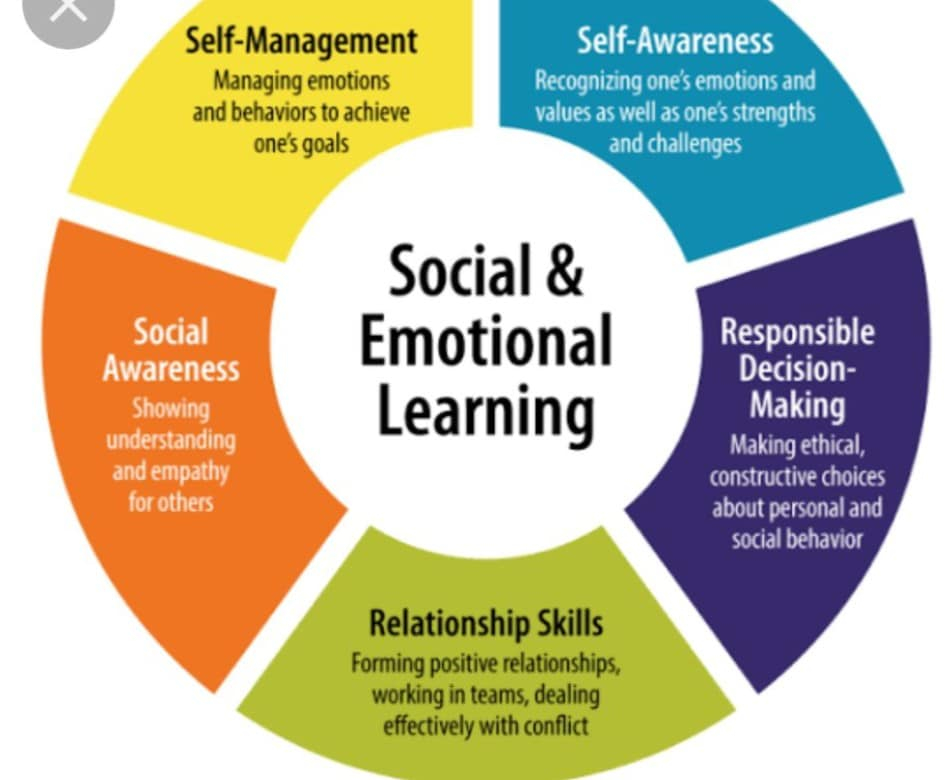How can a Parents help of Troubled Teens
How can a Parents help of Troubled Teens
17-Aug-2016
Being a parent is one of the most challenging responsibilities you can undertake, regardless of whether you’re the mother of two-year-old twins or 10 to 19 years teenage boys or girls. While the demands placed on you regarding work and your career are certainly daunting at times, few things are as difficult to cope with as is parenting a teenager with significant problems. Yes, all teens have to deal with hormones, schoolwork, dating, and thinking about the future, but for mothers of troubled teens, those struggles pale in comparison to what they and their teen are going through. It can be difficult to know how to handle the problems you and your child face. As you maneuver options, breakthroughs, and difficulties, here are six coping tips for dealing with a troubled teen.
Method 1: Being Aware
Know what your teen is facing. Being troubled can cover a wide range of issues, from the behavioral (drug use, sexual explorations, and criminal activity) to the mental (ego and self-esteem). Being aware of what the teen is dealing with is the first step in helping them recover.
- • Before you go investigating, try communicating honestly with your teen (or have someone else do the job for you). If they aren’t willing to open up, you’ll need to start putting the pieces together yourself.
Watch for behavioral problems. These include falling school grades, lack of interest in hobbies they previously enjoyed and suspicious activities.
- • Though these are just symptoms of a greater cause, keeping alert will help you piece the puzzle together and help you get to know your son/daughter. Take every opportunity to gauge information and keep notes to stay mentally organized.
Communicate with others in his/her circles. Your neighbors and parents of your teen’s friends are a good place to start. This gives you a broader view of the situation in your teen’s sphere of influence with his/her peers.
- • In addition to being valuable resources of information, it’s likely that they’ve been there too and can be a source of support. Don’t be afraid to open up about your concerns – you’re trying to be an involved, caring parent.
Keep track of your teen’s progress. Not all teens are going to be excellent students, nor will they all begin dating at the same age. But knowing what track they are on will help you better predict the future.
- • Certain facts are not necessarily indicators of trouble or rebellion. But as a parent, you should develop a familiarity of your teen’s growth, both in maturity as well as physically.
Understand what constitutes a “normal” teenager. Sometimes signs of trouble may just be signs of growth. All teenagers go through changes in dealing with growing up.
- • Keeping up with fashion is important to most teens. This may mean that your teen suddenly decides to dress provocatively or dye their hair. This is considered normal behavior. Limit your criticism to the bigger issues, like tattoos.
- • A changing appearance is not a red flag unless you suspect self-harm or see serious weight gain or loss.
- • As teens mature, they’ll become more argumentative and rebellious. Red flags are skipping school, getting into fights and violence on any level at home. These go beyond the norm of teenage rebellion.
- • Mood swings are normal. They may be irritable one moment and jumping for joy the next. What you should be concerned with are persistent sadness, anxiety or sleep problems. These could be signs of depression or bullying.
Method 2: Support
Be on your teen’s side. Communicate openly with them, and let them know you care about them and are interested in what is going on in their life.
- • All teens (people, really) need to feel loved. Regardless of how independent or averse to you they seem, they still need positive, reassuring attention from you.
Support positive influences in their life. If they are involved in sports, clubs, or other positive activities, be supportive of them so they can be as successful as possible in what they are doing. Knowing they have a fan will encourage them to pursue these positive goals.
- • You may need to be rather obvious with your support. In research, teens often misread facial expressions; when shown pictures of adult faces expressing different emotions, teens most often interpreted them as being angry. This is because teens use a different part of their brain to identify the emotion.
Seek professional help, if necessary. Your teen may not be able to use you as an outlet but a certified therapist may be a healthy alternative.
- • Consult your spouse or a close family member for their opinion. If therapy seems necessary, talk to your son/daughter first. If they are opposed, make clear the benefits of therapy and explain that there are no stigmas attached – in fact, no one will have to know.
- • Choose a therapist that specializes in teenagers with troubling issues. Each therapist has a specialty and doing your research beforehand will maximize the possible effectiveness of your child’s therapy.
Method-3: Dealing with Issues Effectively
Make boundaries for your teen. A curfew isn’t mandatory but many teens actually do better when they know what time they should be home. Putting limits on where they can go and what they can do will help them recognize that their behavior does matter.
- • Be reasonable and reward good behavior. If your teen is hanging out with friends you know and calls to check in, relax. They are giving you a reason to trust them; show them you recognize and appreciate their good behavior.
Establish consequences. Saying, “You’re grounded!” is no good if they are out and about the next night. Make sure your imposed boundaries have a reason to be obliged by.
- • Stick with it. It may be hard at first, but having a routine allows both of you to know what to expect. Your teen will know the consequences of his/her actions without you having to explain them outright.
Talk to your teen’s teachers or guidance counselor. If you suspect a school problem is evolving, they may be privy to information you are not.
- • Teachers will be happy to keep your meeting confidential. Putting a bug in their ear that your child’s behavior may be on a slippery slope is not embarrassing; the teachers are there to help and may be unaware of any problems at home.
Grant your teen space. They need all the time in their world to find out who they want to become. Holing themselves up in their bedrooms may not be the worst thing. Allow them their time.
- • This is especially necessary if your teen is prone to anger. They need time to cool off. Demanding apologies while they are still raging will only escalate the situation.
Give them responsibility. This can be in any way you deem appropriate. Give them a list of chores or ask them to help around the community for their allowance.
- • Encourage them to get a part-time job. If they don’t seek one out themselves, ask around your area for potential employers or neighbors who need jobs done.
Get them active in the family. Make sure you’re active first! Make family dinners and game nights a regular event. Letting your child know they are a part of the family and matter will make them feel culpable for their actions.
- • Set a good example. If you’re constantly online and emailing at the dinner table, they’ll have no reason not to mirror your behavior. If you expect them to be involved, be involved yourself.
Method-4: Caring for Yourself
Manage your emotions. You can’t help your teen if you often come across as angry, suffocating or unreasonable. You’re seeking change – letting your emotions take over your logic may exacerbate the problem.
- • Remove yourself from the parent/child relationship. They aren’t going to listen to you just because you’re their elder. Think of how you would treat the situation if they were your equal. How would you try to get through to them? Staying level-headed will help you think clearly and make the best decisions.
Take time to relax. If you are losing sleep over this, you’re not in the best shape to conquer these issues. At the end of the day, it’s your teen who needs to overcome this, not you.
- • Don’t feel guilty for taking the time to yourself. It’s important to rejuvenate and energize yourself before you try to take on topics that are exhausting. If you’re beaten down, it’ll show. You’ll become more easily exasperated and more likely to give up. Your teen needs you to stick with them. Take the time to be able to do just that.
Stay positive. You may be making a mountain out of a molehill. What were your teenage years like? Your friends’ and families? Most acts of rebellion come in phases. Though you should take your son/daughter seriously and address the issues at hand, knowing that “this too shall pass” will be incredibly beneficial to your overall stress and ability to cope.
- • Happiness is contagious. If your teen sees that you’re overwhelmed, exhausted and bitter, there will be no example for them to follow. They are still at an age where they need someone to copy; you can be that person.
Method-5: Practice Empathy
Lastly, remember that it’s tough to be a teenager. No matter what problems you and your teen are facing, do your best to put yourself in her shoes. Practicing empathy will enable you to keep a soft heart and an open mind toward your child — even if it feels like she’s dragging you to hell and back. The teenage years are some of the most trying for parents and children. Practice these six coping tips when dealing with troubled teens, and hopefully, you and they will emerge on the other side of it stronger, healthier, and more loving.
More Blog
Mental health needs to notice in Bangladesh
12-Sep-2024Like other countries Mental health is one of the warning issues in Bangladesh gradually. Though the immense consequences of this... read more
Happiness tips:
02-Apr-2022Happiness is also one of the important aspects of positive psychology and wellbeing. Do something you enjoy every day, e... read more
What is SEL?
31-Jan-2022Social-emotional learning, commonly referred to by its acronym, SEL, is a method of promoting holistic child development by teac... read more



